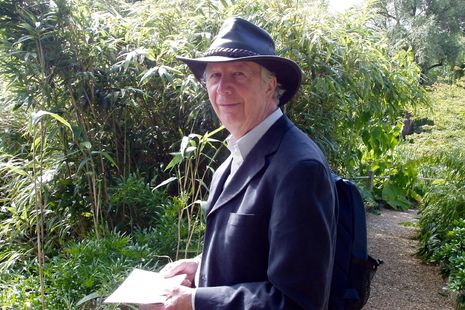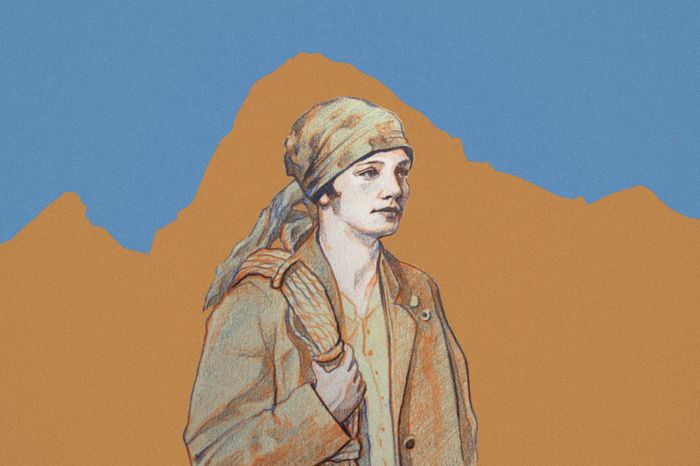Professor Alan Macfarlane on blending YouTube and academia
Claire Ding meets Alan Macfarlane to reflect on his experiences as a professor on social media

Before interviewing Professor Alan Macfarlane, I would never have associated the term ‘YouTuber’ with a Cambridge academic. Yet Macfarlane, Emeritus Professor of Anthropological Science and Life Fellow at King’s College, defies this assumption – blending two seemingly incompatible worlds. Since joining the platform in 2006, he has uploaded over 2000 videos and gained a following of 55,000. His most popular video, uploaded 18 years ago, has over 2.1 million views.
Macfarlane’s interest in using multimedia to reach broader audiences dates back to the 1970s. When new digital platforms emerged in the early 2000s, he embraced them naturally. He shares with me a diary entry from October 22nd, 2006, the day he first experimented with YouTube. It began with reflections on global warming and the wildlife crisis, then shifted, in a tone of excitement, to the discovery of “a free internet site for uploading videos – extremely useful, effective and opens up all sorts of possibilities”.
“Each morning, Macfarlane sits for half an hour to speak freely on themes ranging from love and envy to democracy and even toilets”
His early videos were recordings of his lectures, which at the time were seen as “crazy” by his colleagues. While many feared that online access to lectures would reduce attendance, Macfarlane found the opposite to be true. Students continued to engage in person while appreciating the flexibility of online access – using recordings for revision, note-taking, and catching up when ill. For Macfarlane, technological advancement is “not a zero-sum game, but a situation where each technology adds and enriches the previous one”.
Beyond lectures, Macfarlane began sharing personal reflections on a wide range of topics, initially with some apprehension. Drawing on Erving Goffman’s concepts of the ‘front stage’ and ‘back stage’, he explains that academics have traditionally kept their personal lives behind the curtain, presenting only polished ideas in lectures, books, and supervisions. To his relief, the feared “hate mail” or “abusive comments” never came. Instead, he typically receives supportive comments: some even ask questions or give him suggestions. It’s safe to say that his subscribers are loyal to his channel.
During the COVID-19 lockdown, Macfarlane launched a series titled ‘What I Have Learnt About Myself and the World’. The idea came from his wife, Sarah Macfarlane, who encouraged him to record his thoughts as someone who is “now very old and has seen the world”. The format of the video drew inspiration from ‘Essays’ by Michel de Montaigne, which comprises 107 chapters on wide-ranging topics from custom and travel to cannibalism, all delivered in an accessible style.
“Macfarlane remains hopeful that young people will map out the world using new technologies”
What began as a handful of short recordings grew into 260 videos, now being edited into a comprehensive book. Each morning, Macfarlane sits for half an hour to speak freely on themes ranging from love and envy to democracy and even toilets. One recent video explored the concept of ‘digital democracy’ as a new kind of direct participation enabled by social media in China. The “odd thing with creative activities” is that “you start with a blank sheet of paper and just let your mind work”. Unexpected insights often emerge, an experience he likens to ethnographic fieldwork in anthropology.
More recently, Macfarlane joined the Chinese social media platform ‘Xiaohongshu’, also known as RedNote. His account gained an astonishing 94,000 followers within a week, nearly twice his YouTube audience, which was built over 19 years. He attributes this success to a lesson learned after writing for non-academics: “most people can perfectly understand complex ideas if you put them in a simple way, without jargon or long words.” He credits his skill of clear and simplified communication to his undergraduate days at Oxford, where the collegiate system encouraged conversation across disciplines, pushing students to explain their subjects in plain terms.
Just before the interview ends, I raise a must-ask issue to every anthropologist – that of artificial intelligence (AI). Macfarlane is optimistic. He sees AI and emerging technologies as powerful tools for transformation, offering a chance to rethink education, work, and the structure of society itself. “We are at a turning point,” he says, “not just geopolitically, but in this fourth communication revolution”. Macfarlane remains hopeful that young people will map out the world using new technologies. “If we can dream and imagine what we want, we can achieve it.”
 News / Colleges charge different rents for the same Castle Street accommodation2 March 2026
News / Colleges charge different rents for the same Castle Street accommodation2 March 2026 News / King’s hosts open iftar for Ramadan3 March 2026
News / King’s hosts open iftar for Ramadan3 March 2026 Theatre / Lunatics and leisure centres 4 March 2026
Theatre / Lunatics and leisure centres 4 March 2026 News / Angela Merkel among Cambridge honorary degree nominees27 February 2026
News / Angela Merkel among Cambridge honorary degree nominees27 February 2026 News / News in Brief: waterworks, wine woes, and workplace wins 1 March 2026
News / News in Brief: waterworks, wine woes, and workplace wins 1 March 2026








